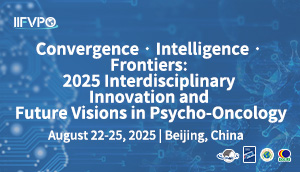Guest Editors
Dr. Burak Taşcı
Email: btasci@firat.edu.tr
Affiliation: Fırat University, Türkiye
Research Interests: Artificial intelligence in healthcare; medical signal processing; explainable AI; neuropsychiatric diagnostics
Dr. Gülay Taşcı
Email: akcagulay01@gmail.com
Affiliation: Elazığ Fethi Sekin City Hospital, Türkiye
Research Interests: Forensic psychiatry; psycho-oncology; affective disorders; trauma and neuroinflammation
Dr. Filiz Özsoy
Email: filiz.ozsoy@gop.edu.tr
Affiliation: Tokat Gaziosmanpasa University, Türkiye
Research Interests: Psychiatric comorbidities in cancer care; consultation-liaison psychiatry; mental health interventions; medical ethics
Summary
This Special Issue explores the integration of artificial intelligence (AI) in psycho-oncology, a growing interdisciplinary field addressing the psychological, behavioral, and social aspects of cancer. The convergence of AI and psychosocial oncology holds immense potential to improve patient outcomes, streamline care, and inform ethically sound interventions. As cancer patients face substantial emotional and cognitive challenges, AI technologies offer promising tools for early detection of psychological distress, personalized support delivery, and enhanced decision-making in palliative contexts.
This issue invites original research, reviews, clinical case analyses, and ethical perspectives that explore AI applications in psycho-oncology. We encourage contributions examining AI-based tools for screening mental health issues in cancer patients, predictive modeling of psychosocial outcomes, digital therapeutics (e.g., virtual agents), and real-time monitoring through wearable devices or digital phenotyping. The issue also seeks to address ethical challenges such as privacy, consent, and the human-AI interface in sensitive healthcare settings.
By highlighting interdisciplinary collaborations across psychiatry, oncology, computer science, and medical ethics, this Special Issue aims to provide a comprehensive overview of how AI can enrich psychosocial care in oncology. We hope it will spark academic discourse, inform clinical practice, and shape future research directions in this vital area of cancer care.
Keywords
Artificial intelligence; psycho-oncology; mental health; cancer; psychosocial care; machine learning; ethics in AI; NLP; emotional support; wearable devices; palliative care; digital health



